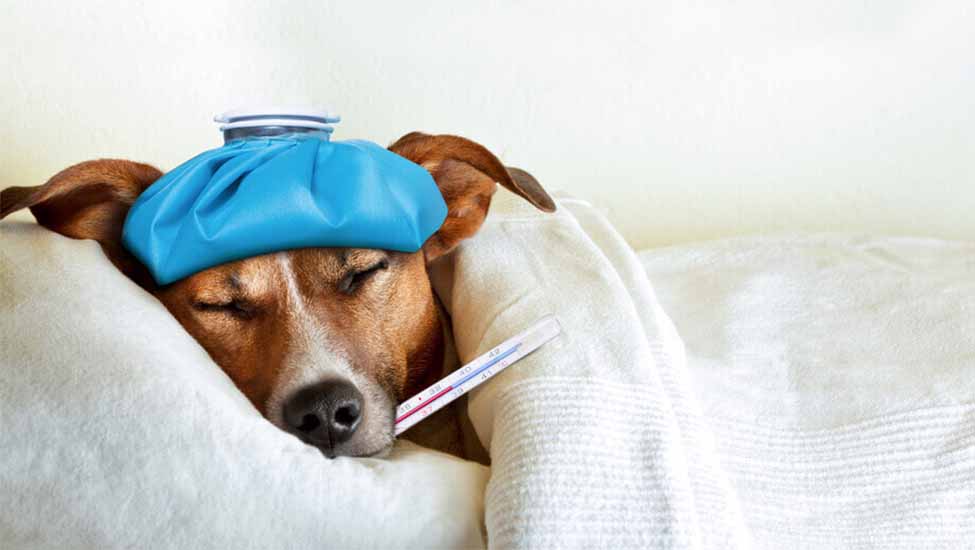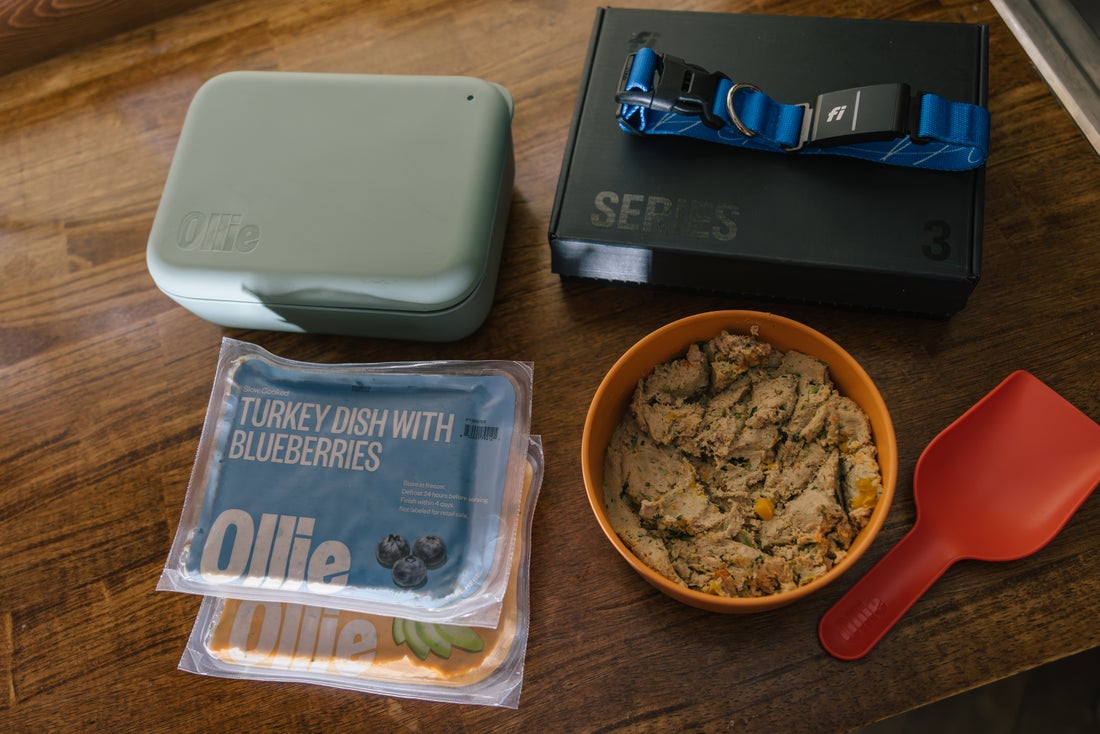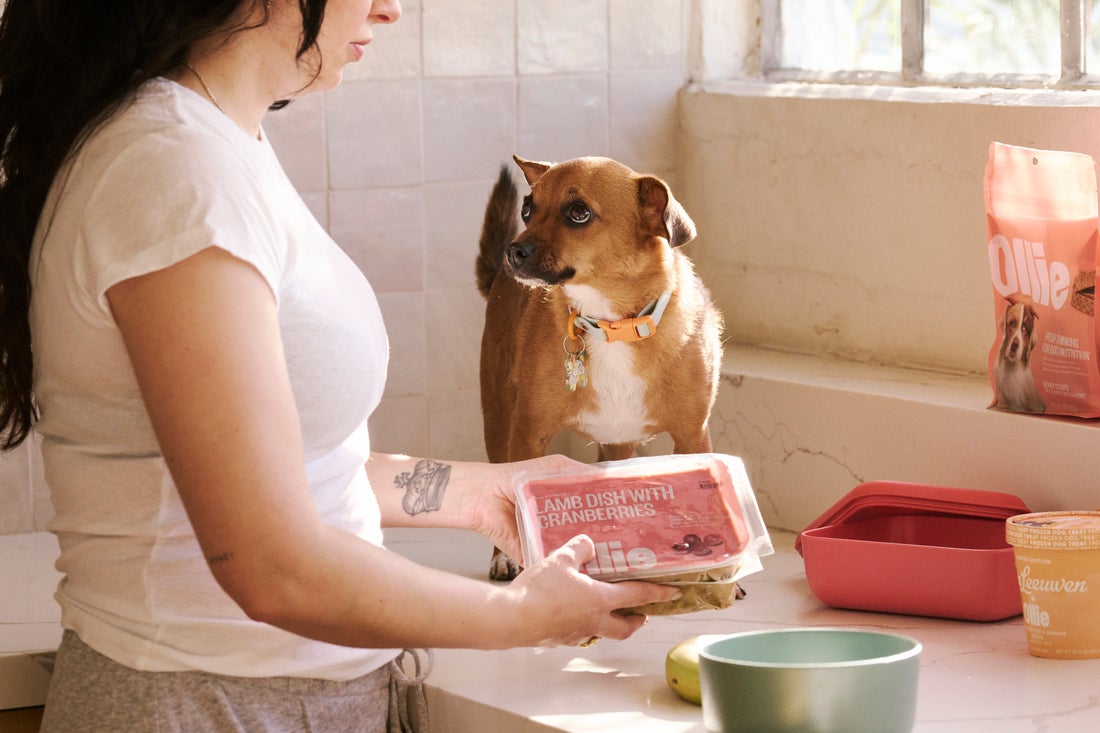Hey Ollie blog readers! We’re offering you an exclusive 60% OFF your starter box! Try now!
This year’s flu season has been the worst in years for humans. But what about for dogs? Turns out, pups can get the flu, too—and it’s just as miserable for them as it is for us. They can suffer from a fever, cough, loss of appetite and general lethargy. The dog influenza virus is different from the human kind but it can be just as dangerous. If it’s not treated in time, the dog flu can be fatal for 10 percent of dogs, according to the American Veterinary Medical Association.
And just like the human flu, the dog flu is traveling faster and is making dogs sicker than ever before, says Dr. Gary Richter, DVM, author of The Ultimate Pet Health Guide. “In the same way that kids can catch the flu from school or daycare, the popularity of social spaces for dogs creates environments where the virus can spread to a lot of dogs very quickly,” he explains. Read on to learn everything you need to know about how to prevent and treat the dog flu.
How common is the dog flu?
Just like the human flu, it varies from year to year and from state to state. It’s hard to determine how many cases there were this year, but reports indicate that there were cases in nearly every state, with about 50 cases in one San Francisco clinic in just two weeks. Fortunately, the dog influenza virus is different than the human one, so you can’t get sick from your dog, nor can your dog get sick from you (read: you can keep your pup as your cuddle buddy!).
How is it spread?
The viral infection is spread the same way that the human virus is spread: from sneezing, coughing and barking when dogs are in close contact with another dog who is already infected.
What are the symptoms?
Look for coughing, mucus discharge from the nose and eyes, fever and general lethargy, Richter says.
How can it be prevented?
Dr. Kyle Frandle, DVM, a veterinarian at Los Gatos Dog & Cat Hospital in California, recommends that every dog get the flu shot annually. If your dog doesn’t go to daycare or other social spaces, you might think you can skip it, but Frandle warns otherwise. “Any dog who goes to Starbucks, who goes to the groomer, who gets a bath – is at tremendous risk for the virus,” he says. Since more and more dogs are traveling with their humans, the flu is spreading faster than ever before. In addition to getting vaccinated, Frandle suggests sanitizing everything that may come in contact with other dogs at the groomers or at daycare, such as toys, leashes or bowls.
When should you take your dog to the vet?
If your dog is coughing, sneezing or has nasal discharge, you should make an appointment with your vet. “The symptoms of canine influenza can initially look very similar to kennel cough,” says Richter. “Dogs with severe symptoms may need to be hospitalized and put on IV fluids and medication to help them recover,” he says. If the symptoms are not as severe, your pup will probably be put on antibiotics to prevent or treat secondary bacterial infections.
The Ollie blog is devoted to helping pet parents lead healthier lives with their pups. If you want to learn more about our fresh, human-grade food, check out MyOllie.com.
Tagged As:

The nutrition your dog needs,
the food they want.

Enjoying our articles? Subscribe our Newsletters and get new articles directly to your inbox
You might also like
18 September 2025
5 MINS READ
Can I Rotate Fresh Dog Food Flavors?
Yes, it’s safe to rotate fresh dog food flavors, and many dogs actually benefit from the variety. At Ollie, we offer multiple fresh recipes, like Beef, Chicken, Turkey, Lamb, and Pork so you can…
by Ollie Pets
18 September 2025
5 MINS READ
Is Fresh Dog Food Safe During Power Outages?
Fresh dog food is only safe during a power outage if it has stayed cold, specifically, below 40°F. Once the temperature rises above that point, bacteria can start to grow, and the food may no lon…
by Ollie Pets
18 September 2025
5 MINS READ
How Do I Store Fresh Dog Food While Traveling?
If you’re bringing fresh dog food on the road, keeping it cold is key. The best way to store it is in a cooler with ice packs or a travel freezer. At Ollie, our vacuum-sealed fresh food stays good…
by Ollie Pets







